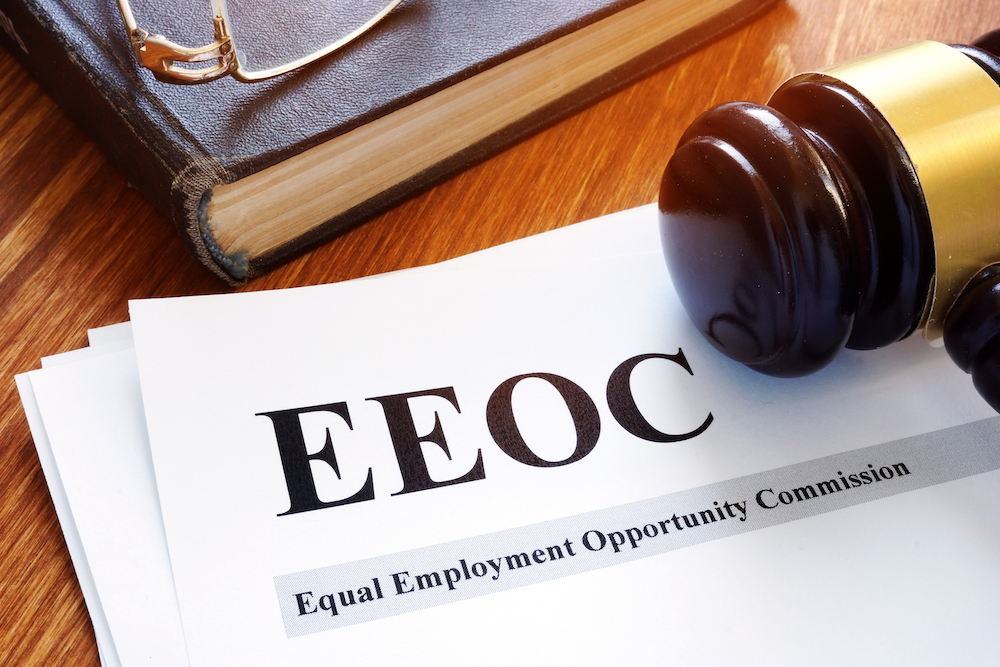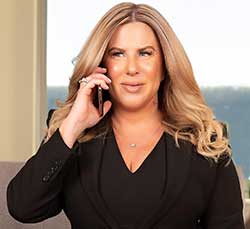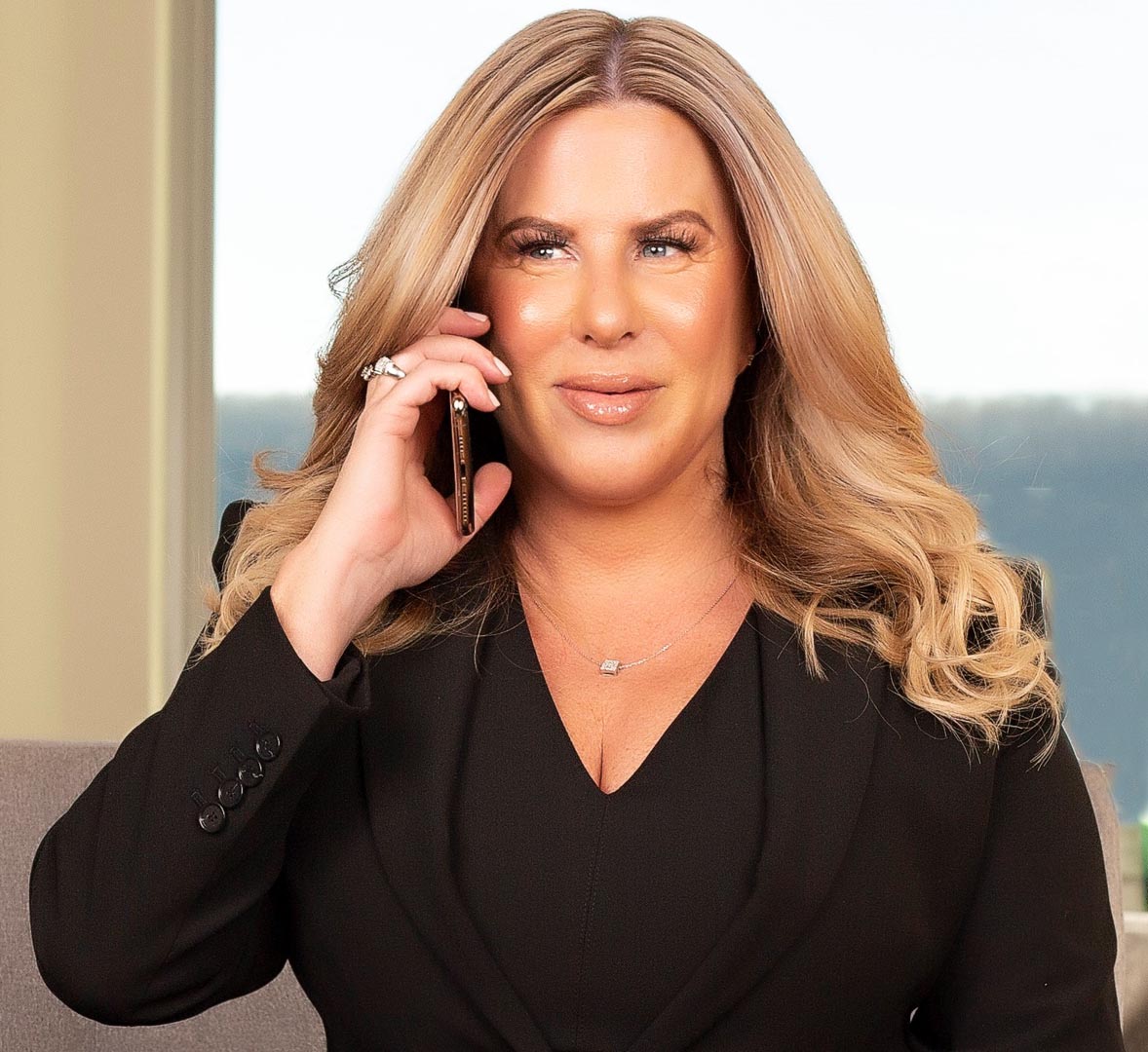White Plains Employment Discrimination Lawyer
Westchester County employment and labor lawyer Claudia Pollak explains the protections afforded to workers under the federal and New York state discrimination laws.
Despite the public outcry for a level playing field and a fair and congenial workplace, discrimination and harassment continues to be prevalent. While workers must be free to earn a living without exposure to unequal treatment or a harassing and hostile work environment, they often find themselves the targets of harassment and bigotry at the hands of supervisors, managers or co-workers. Several federal and state laws offer recourse for this type of workplace abuse. In addition to federal law, in 2019, New York welcomed sweeping legislation that significantly enhanced protections for employees and independent contractors who are subjected to discrimination and harassment by their employers — an acknowledgment that the American workplace continues to be rife with discrimination and harassment based on certain individual characteristics. Working with a White Plains employment discrimination lawyer is one of the best ways to fully understand and utilize your rights and protections as an employee.
What Characteristics Are Protected From Workplace Discrimination?
Under the law, employees are protected from discriminatory employment decisions, such as being unfairly fired, demoted, receiving less pay than co-workers performing the same functions, or being subjected to discourteous, bullying or physically threatening behavior, based on the existence of a personal characteristic. In New York, individual characteristics that are protected from discrimination include:
- Age
- Race
- Religion
- National Origin
- Sexual Orientation
- Gender Identity or Expression
- Military Status
- Sex
- Disability
- Predisposing Genetic Characteristics
- Familial Status
- Marital Status
- Domestic Violence Victim Status
Are All Types of Employers Subject to the Discrimination Laws?
Yes, New York’s employment discrimination laws prohibit discrimination not only by private companies and businesses, but also by nonprofit organizations, employment agencies, labor unions, and government agencies.
Are Independent Contractors Protected From Discrimination?
Yes, New York’s workplace discrimination laws protect both employees and “non-employees” from discrimination, including freelancers, independent contractors, subcontractors, vendors, consultants, domestic workers and temporary workers.
Are Workers Protected From Retaliation If They Complain About Discrimination?
Yes, employees and independent contractors who oppose discrimination, or who have filed an internal complaint with their supervisor or human resources department, or with the courts or a state or federal agency such as the EEOC or NYS Division of Human Rights, are protected from retaliation. A claim of retaliation is separate from, and in addition to, the worker’s underlying claim of discrimination. Recourse is available if the worker had a good faith belief that they were complaining about unlawful discrimination based upon a protected characteristic, and they faced adverse action by the employer, such as termination, a demotion, or negative performance evaluation as a result of lodging their complaint.
Are Employees Protected from Mean Bosses?
While there is no shortage of mean, unappreciative, or unfair bosses, this behavior is generally not illegal unless it is motivated by race, sex, age, disability, or one of the other protected characteristics. This means that, in order to have a viable claim of discrimination against an employer in New York, a worker must demonstrate that he or she was subjected to harassment or less favorable employment terms or conditions because of a protected characteristic. This type of legal claim requires circumstances where the discriminatory motivation of the employer is tied to the unfair or harassing treatment experienced by the employee.
Discrimination is often illuminated by comparing how employees with varying personal characteristics are treated by an employer. For example, an inference of discrimination may arise when an employer only requires its Black employees to wear a uniform, while employees of other ethnic groups are free to wear the clothing of their choosing. However, this type of comparison is not always required to prove a claim of discrimination in New York. Rather, employees need only show that they were treated “less well” by the employer as a result of their protected characteristic.
What is The Difference Between Discrimination and Harassment?
While claims of job discrimination and harassment often differ in how they are carried out, prejudice underlies both types of workplace misconduct. Generally speaking, discrimination exists when one group is favored over another, or is subject to inferior terms, conditions, or privileges of employment because of an individual characteristic such as a person’s race, age, or gender. In contrast, harassment occurs when members of a particular group are recipients of offensive comments and/or behavior because of their identity and personal characteristics. Therefore, while a workplace that consistently fails to promote Black employees can be discriminatory, a situation where Black employees are taunted, insulted, or subjected to offensive behavior such as demeaning comments, racial epithets or jokes, or stricter work rules, creates a hostile environment that is also discriminatory.
Federal law has a more stringent standard for proving a hostile work environment than New York state law, requiring that a worker show that, as a result of their race, gender, or other personal characteristic, they were the victim of conduct which is so severe and pervasive that a reasonable person would find it harassing and abusive. In contrast, New York state has broader protections for employees, requiring only that they be subjected to inferior terms, conditions or privileges of employment because of a personal characteristic. It should be noted that discrimination does not exist where workplace conduct amounts to nothing more than “petty slights” or “trivial inconveniences.”
A hostile work environment can be identified based on several factors, including the frequency and severity of the discriminatory conduct, whether the conduct is physically threatening or humiliating, and whether it interferes with an employee’s work performance. While isolated incidents may not necessarily establish the existence of a hostile work environment, even a single instance of harassment, if sufficiently severe, can be enough to create a hostile work environment.
What Are the CONSEQUENCES of Discrimination?
Workers can experience a range of harmful outcomes as a result of an employer’s discriminatory or harassing treatment and beliefs. These include:
- Failure to hire
- Failure to promote
- Lower wages
- Less benefits
- Failure to offer advanced training
- Workplace segregation
- Disproportionate discipline, such as suspensions or write ups
- Demotions
- Lay offs
- Wrongful termination
Is it Necessary to Report Harassment For the Employer to be Liable?
No, depending on the circumstances, victims of discriminatory treatment do not need to report the harassment to a manager or the human resources department in order to hold the employer liable for discrimination. However, when an employer fails to promptly investigate a complaint of harassment and immediately take steps to stop the abusive and discriminatory behavior, the employer may be considered negligent in its duties to supervise the workplace — potentially increasing the employer’s liability for the conduct of its harassing employees.
Documenting and Reporting Discrimination
If an employee or contractor experiences discrimination in the workplace based on a protected category, whether the offender is a co-worker, supervisor, manager, client, or customer, the first step is to carefully document the abusive or discriminatory treatment. This includes noting each instance of inappropriate behavior and comments, writing down the date, time, and individuals present and what was said or what actions were taken. Save email messages and text messages, screenshot social media posts, and compile pictures, video, and audio that evidences the discrimination.
The next step is to report the discrimination to the designated person or department at work. Employees should check their job’s employee handbook or employment discrimination policies, if their employer has implemented them, to determine how to report discrimination and abuse. If the company does not have a discrimination policy or employee handbook explaining how to report discrimination, complaints can be directed to the human resources department or any manager or supervisor (with hiring/firing authority).
It is important that employees document complaints and reports made to their employer about discrimination and harassment. Employers are expected to promptly investigate and address discrimination, and can be held accountable if they fail to do so. Employees should document their complaints by putting them in writing or, at minimum, making a notation of the date, time, and name of the person to whom the discrimination was reported. If the situation is not rectified or if the discrimination is being perpetrated by those in charge, it may be helpful to seek the advice and assistance of an employment lawyer who can advise on available legal rights.

Claudia Pollak
Claudia Pollak, Esq. is an experienced Westchester and NYC-based employment lawyer representing employees facing discrimination, retaliation or wrongful termination because of their race, disability, pregnancy, sexual orientation, gender, or other protected characteristic. She also advises on executive severance agreements and restrictive covenants. Call her at 914-LAW-9111 (914-529-9111) for a free consultation.
Employment Discrimination
Employment Discrimination
Employees in Westchester County and other parts of New York state are protected from discrimination in employment based on a number of personal characteristics.
Sexual Harassment
Sexual Harassment
Sexual harassment at the workplace has always existed, but the #metoo movement has brought this ugly secret out into the glaring light of day.
Disability Discrimination
Disability Discrimination
Being disabled can impact individuals in several important ways. For a great many Americans, however, it does not prevent them from working.
Breach of Executive Employment Agreement
Breach of Executive Employment Agreement
Despite the existence of an enforceable contract, employers sometimes terminate an executive’s employment before the end of term, and in violation of the employment agreement.
Gender Discrimination
Gender Discrimination
There are many types of gender discrimination occurring in the workplace, including discrimination based on sexual orientation, pregnancy, or transgender or non-binary status.
Hostile Work Environment
Hostile Work Environment
Some of our most vulnerable populations are experiencing increasingly stressful employment situations. In fact, many workers in America (up to 1 in 5) feel they work in a hostile or abusive work environment.
Racial Discrimination
Racial Discrimination
While many businesses have openly acknowledged the problems of discrimination and inequity facing black workers in America as a result of the Black Lives Matter movement, racial discrimination still regularly occurs in the workplace.
Severance Agreements
Severance Agreements
Whether your position is being eliminated in corporate downsizing, or you are getting laid off or fired for another reason, at some point in your life you may find yourself reviewing a severance agreement.
Pregnancy Discrimination
Pregnancy Discrimination
The last thing you need when you’re starting a family – or growing one – is financial uncertainty or the stress and anxiety that comes from becoming the target of discriminatory treatment at work because of your pregnancy.
New York Equal Pay Law
New York Equal Pay Law
New York Labor Law §194, requires that employees of a particular establishment be paid a wage that is equivalent to the wages paid to employees of the opposite sex, or of a different race or sexual orientation, or who are members of any other class of employees.
GLOWING CLIENT REVIEWS
She puts the needs of her clients first.
Amanda Moody
Very knowledgeable lawyer. Very commendable.
Thomas Sauer
I connected with Claudia for assistance negotiating an employment agreement. Claudia was very responsive right from the start. Once we agreed to move forward, she worked over a weekend and we had calls on a Saturday and Sunday to be in a position to respond by Monday. Her detailed and thoughtful review was extremely valuable to me. She explained all of her rationale and provided me with a detailed response which I used. I am so glad I worked with Claudia and would highly recommend her services!
Salvatore Sama
I wish I could give her a million stars.
Lisa Smith
Its hard to find an attorney who cares about their clients. Well I did Her name is Claudia Pollack she was very fair with me. She provided the service I have never have gotten from any attorney. She is knowledgeable about the law and she explained to me every step of the way what she was doing and why. She had patient’s with me, pretty much held my hand and explained all my options.When Claudia says she is going to do something she does. Her communication level was super.Claudia whordked hard and fast and got the job done.Having hired Claudi I was able the have a lot less stress and most of all slept very well at night knowing that she was on my side
Steven Katz
![]()
I consider myself fortunate to have been introduced to Claudia, who performed flawlessly on my behalf in extremely difficult and trying conditions. As a senior level executive, my expectations for professionalism and service delivery are high and I can honestly say that Claudia went far above and beyond my expectations to represent my best interests. She is tenacious and fights for her clients rather than pursuing the path of least resistance. Her case preparation was extremely thorough and diligent. When combined with her experience and high level of competence in employment law, she is a formidable adversary to any employer, large or small, who exercises digressions in employment tactics. It is without reservation that I recommend Claudia’s services to handle any employment matter, large or small, that requires legal finesse.
Richard Hayes
TESTIMONIALS
Smart, knowledgeable and accessible. Claudia has expertly represented me since 2014 with several successful contracts negotiations.
Very knowledgable lawyer, very commendable.
She puts the needs of her clients first.
I wish I could give her a million stars.




